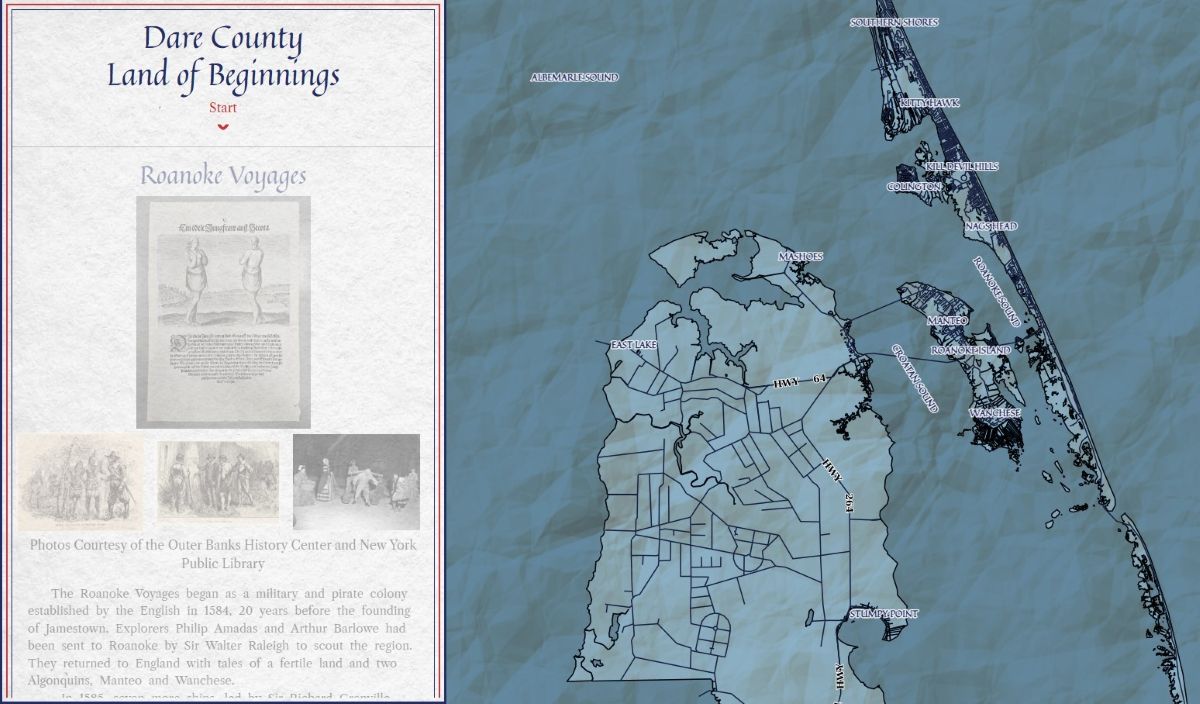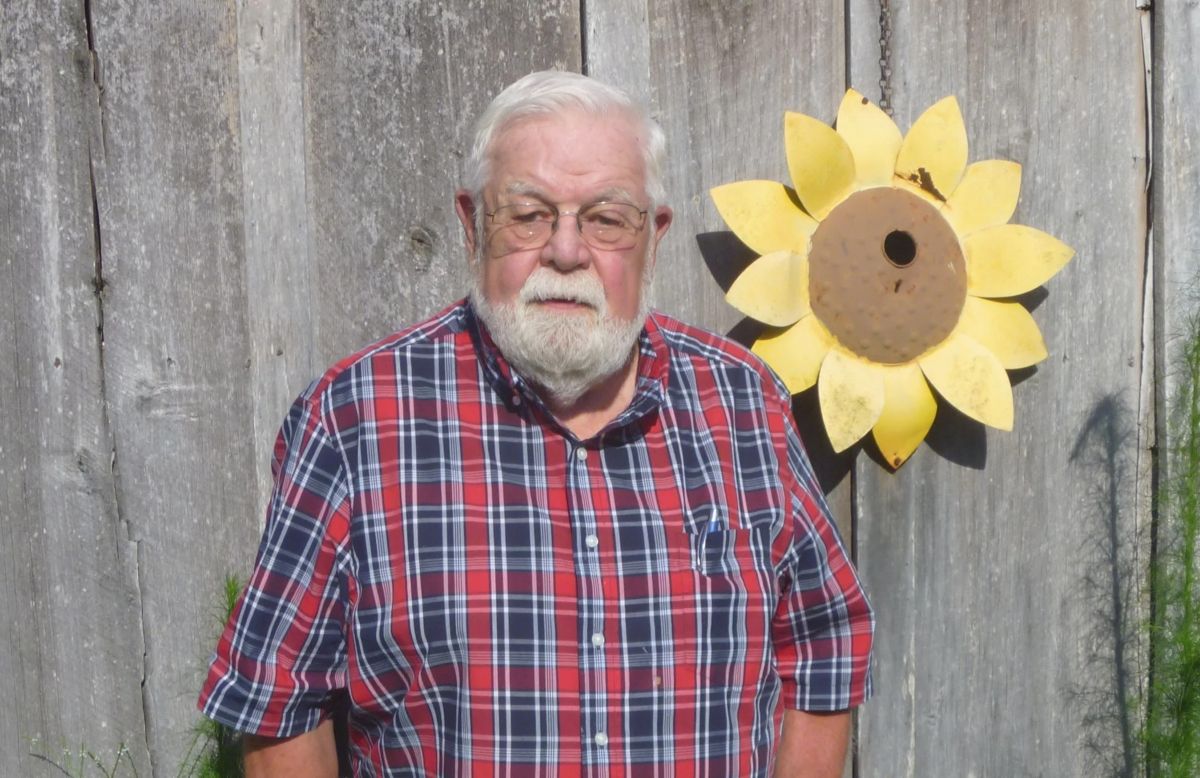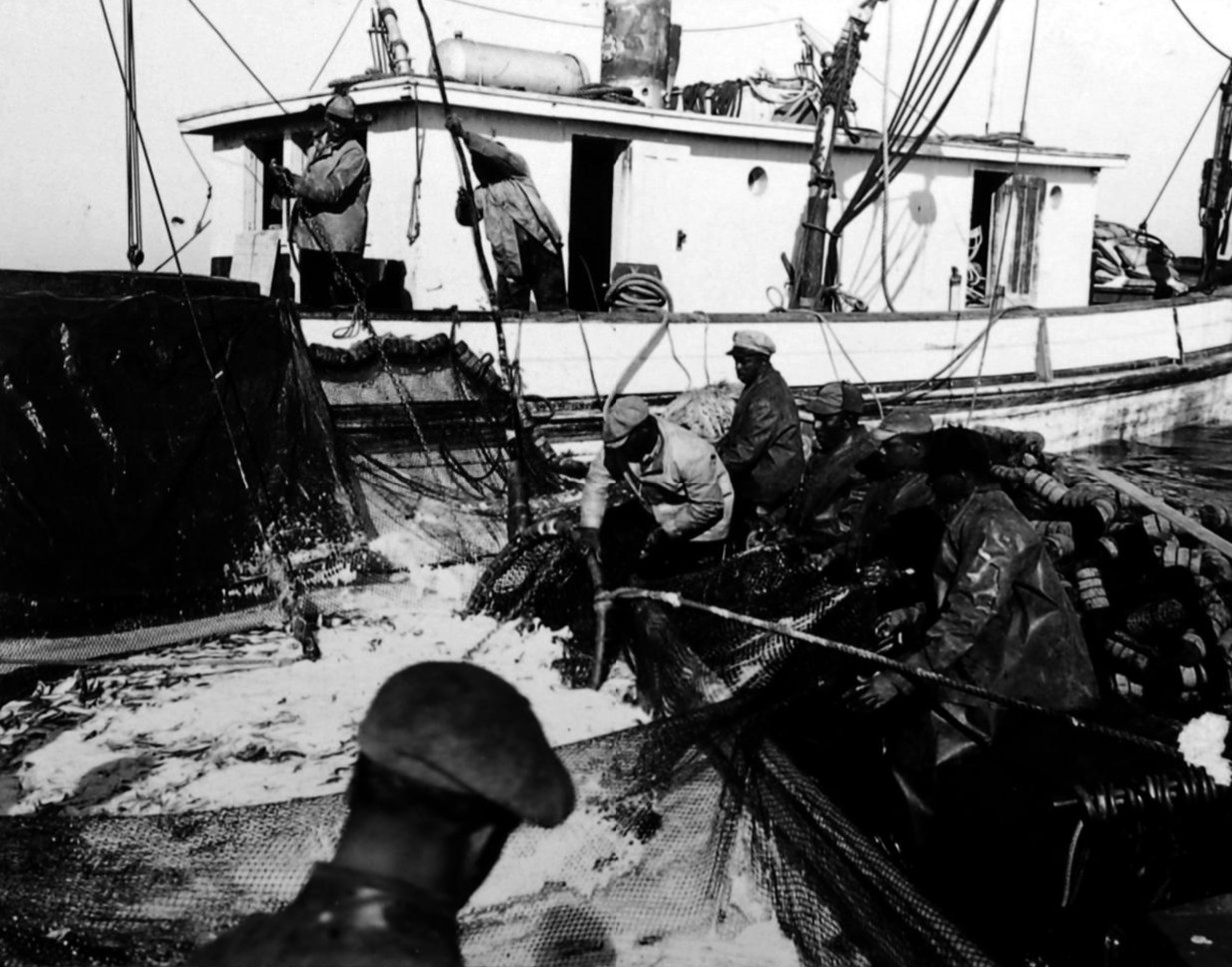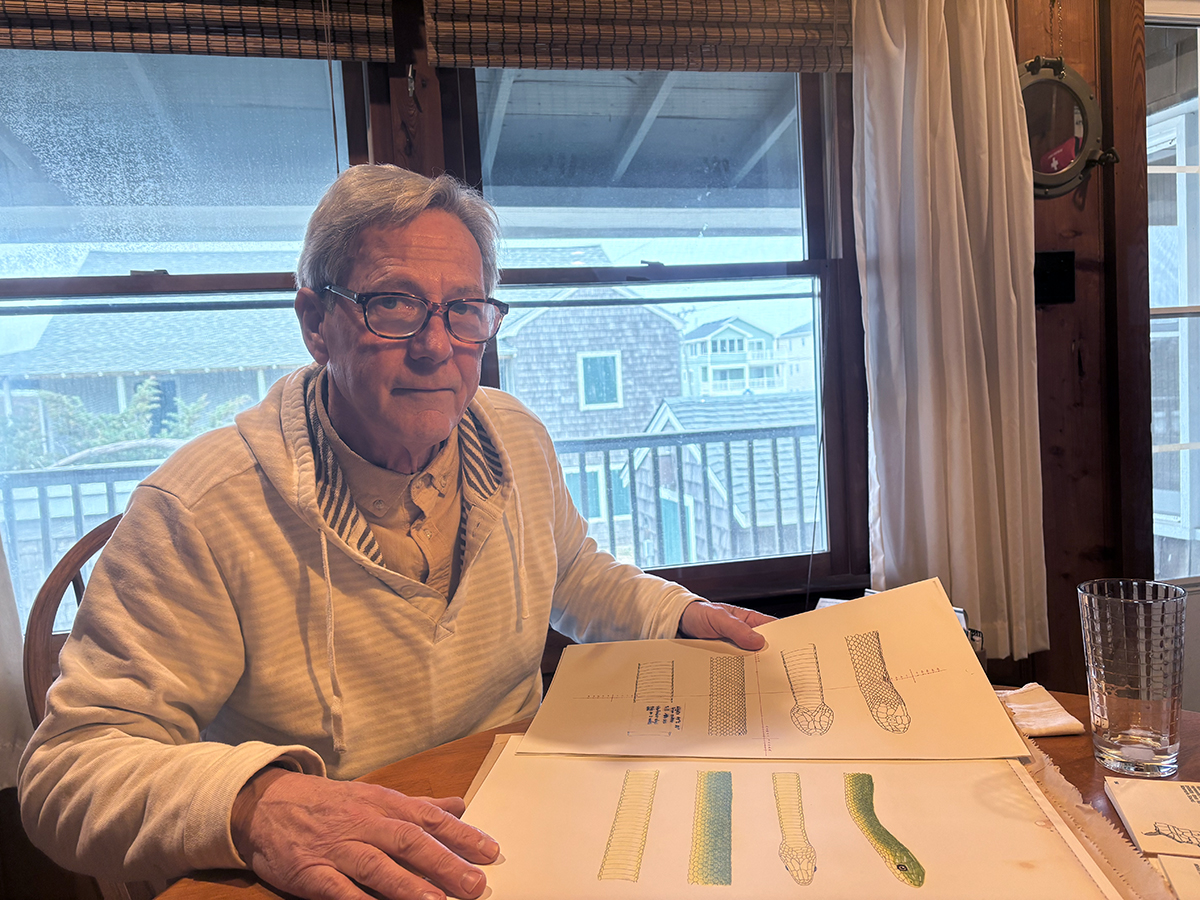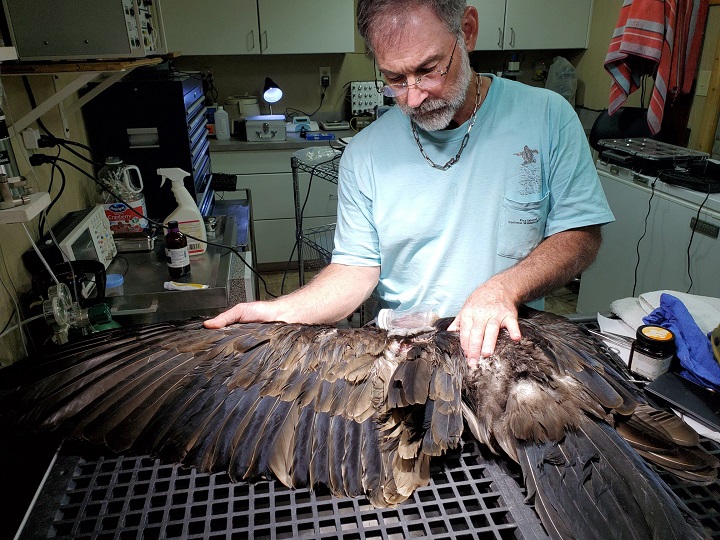
Reprinted from Outer Banks Voice
Lou Browning’s ease around wild creatures didn’t begin when he moved to Hatteras Island as a young adult in the late 1980s, although that was about the time when he first began helping friends at the National Park Service with sick and injured wildlife.
Supporter Spotlight
During his childhood years growing up on a small farm outside of Winston-Salem, aside from the usual assortment of farm animals, Browning found himself spending time around some pretty exotic creatures such as camels and orangutans, just to name a few.
“It was just dumb luck,” explained Browning of his early exposure to animals. “I had some pretty peculiar friends and was just lucky to be in the right place at the right time.”
Browning’s love for wildlife has remained steadfast and was a driving force for the Hatteras Islander in establishing the nonprofit Hatteras Island Wildlife Rehabilitation, Inc., a modest infirmary with flight pens tucked among the live oaks and pines of the maritime woods off N.C. 12 in Frisco.
Browning built the center after he mentored with a rehabilitator and was able to work toward earning a U.S. Fish and Wildlife Migratory Bird Rehabilitation Permit.
Now, nearly a decade after opening, Browning has retrieved and nursed back to health hundreds of wild animals, from orphaned osprey to injured diamond-backed terrapins. He’s assisted in retrieving countless cold-stunned sea turtles and has released innumerable birds back into the wild.
Supporter Spotlight
Browning responds to calls anywhere in northeastern North Carolina to the Virginia line but in the past few years, due to call volume and time restraints, he’s narrowed his focus to caring primarily for raptors such as owls, hawks and osprey. Where he was once receiving upward of 500 calls a year, now it’s down to a more manageable number – roughly 100.
Browning doesn’t get a salary for his work, which can consume between 20 to 60 hours a week, and depends on his own resources and donations. Sometimes, he’ll drive hours to receive injured or sick raptors, rehabilitate them, release them or if not, finding a permanent home for them in places like the Carolina Raptor Center or other educational facilities.
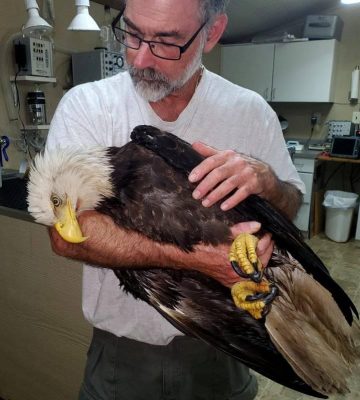
“This is just a hobby that has gone bad – gotten completely out of control,” he laughed.
For Browning, learning about rehabilitation is a never-ending journey, and he takes advantage of any training he can get by attending symposiums at veterinary schools and learning what he can from veterinarians.
Even when he may not have a lot of patients, Browning keeps busy. Recently, he helped the Network of Endangered Sea Turtles, or NEST, retrieve dozens of cold-stunned sea turtles off the beaches to take to the North Carolina Aquarium on Roanoke Island’s Sea Turtle Assistance and Rehabilitation, or STAR, Center. Volunteering with that effort is something he does every winter.
A trained falconer, Browning’s calming demeanor around wild animals has always seemed to come naturally. He knows how to approach wildlife in a nonthreatening, nonaggressive way, doesn’t flinch if he is bitten and is completely at ease, whether he has a carload full of cold-stunned turtles ready for transport or the talons of an owls resting on his forearm.
While many people enjoy rehabilitating what Browning refers to as “the warm and fuzzies,” such as deer and squirrels, he’s always been drawn to the raptors – the eagles, hawks, and owls.
“They are just magnificent creatures,” he said.
Browning’s current patients include a screech owl who was hit by a car in Moyock and suffered a fractured bone in its hand, a fractured femur and a trauma induced cataract, as well as a barred owl who was found lodged in the grill of a car after being hit just south of Jacksonville. Both are recovering well, with the barred owl expected to be released by Dec. 31.
The bulk of raptors that Browning takes in have been hit by cars or have lead or insecticide poisoning – or both.
“My aim is to give (the birds) every opportunity for release,” Browning said, noting that there are a series of tests they need to pass for them to be released back into the wild.
As for the barred owl stuck in the vehicle grill for hours, Browning said that “it’s just dumb luck” the bird will be able to be released soon after the ordeal it had been through. “It was simply beat up.”
After two weeks of rehabilitation with Browning, the owl was soaring through the air in the flight pen behind the infirmary this week – ready to return home any day now.



